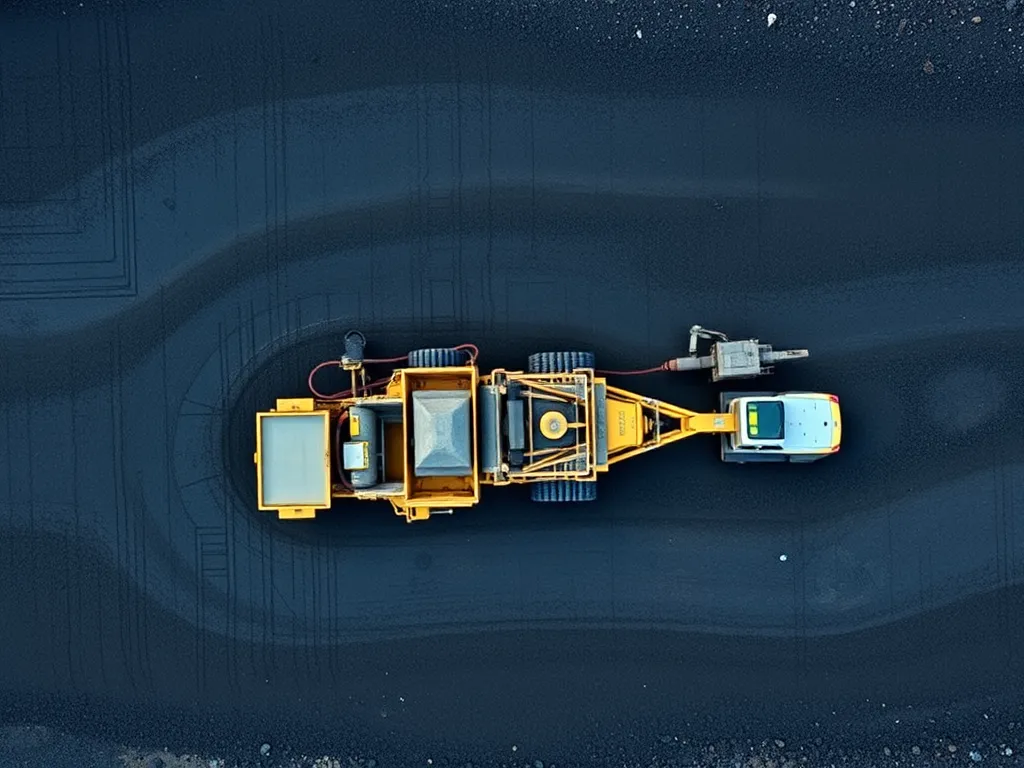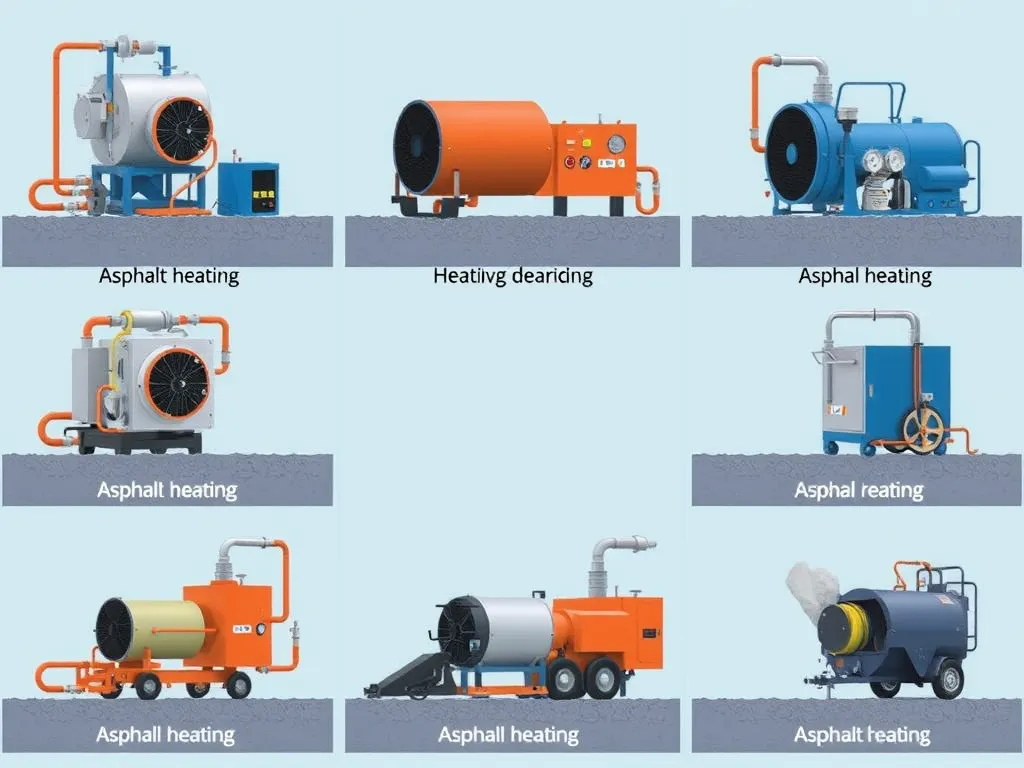Do I Need a Permit for an Asphalt Driveway?
Published on: November 19, 2025 | Last Updated: April 14, 2025
Written By: George Voss
Yes, you often need a permit for an asphalt driveway, but rules vary by city or county. Local regulations focus on safety, zoning codes, and stormwater management. Some areas exempt minor repairs but require permits for new installations or major changes. Check with your local building department to confirm requirements. They’ll review your property size, driveway dimensions, and drainage plans to ensure compliance.
This article explains when permits apply to new driveways, replacements, or repairs. Learn how to avoid fines or removal orders by following local rules. We’ll cover how to check your area’s policies, costs (typically $50-$300), and steps to apply. Compare urban vs. rural permit differences and eco-friendly asphalt options. Get answers to common questions like repaving rules or handling violations.
Contents
- Introduction to Asphalt Driveway Permits
- When is a Permit Required for an Asphalt Driveway?
- Consequences Of Skipping an Asphalt Driveway Permit
- How to Check Local Asphalt Driveway Permit Requirements
- Steps to Apply for an Asphalt Driveway Permit
- Costs Linked to Asphalt Driveway Permits
- Regional Variations in Asphalt Driveway Permit Rules
- Environmental Factors for Asphalt Driveways
- FAQs About Asphalt Driveway Permits
- Closing Thoughts
- Additional Resources for You:
Introduction to Asphalt Driveway Permits
Local governments require permits for modifying property surfaces like driveways. These official permissions verify your project meets zoning codes, construction specs, or environmental rules. Over 60% of U.S. municipalities mandate permits for fresh asphalt installations. Even minor projects might trigger review based on stormwater impact or right-of-way limits.
Why Permits Matter for Asphalt Driveway Projects
Permits protect your investment. Inspectors confirm proper drainage slopes (typically 2% minimum) or thickness (3” for residential, 4”+ for commercial). Skipping this step risks uneven surfaces or pooling water. Municipalities also check setbacks from utility lines or sidewalks. In cities like Chicago, driveways exceeding 24’ width need special review to prevent street congestion.
Legal and Safety Implications Of Skipping Permits
Building without permits invites fines up to $5,000 daily until resolved. Some states issue stop-work orders, forcing removal of non-compliant driveways. Improperly sloped asphalt might redirect stormwater into foundations, voiding home warranties. Fire departments could flag driveways blocking hydrants or lacking turnarounds. Resale complications arise if unpermitted work surfaces during title searches.
Ready to determine if your specific project requires local review? Let’s explore common scenarios triggering permit needs.
When is a Permit Required for an Asphalt Driveway?
Permit rules change based on your project type and local laws. Let’s break down common cases.
New Asphalt Driveway Install: Permit Needs
Most towns need permits for new driveways. Rules vary by area. Check local codes for size, slope, or curb cuts. Zoning rules may set how far your drive sits from property lines (called setbacks). Some places ask for stormwater plans if paving over 500 sq.ft. Permit fees range $50-$300.
Do I Need a Permit to Swap Old Asphalt?
Replacing old asphalt? You may need a permit if changing size or shape. Some areas allow same-size swaps without permits. Always check before work starts. Adding width or length? That often triggers a review. Cities like L.A. charge $235+ for drive expansion permits.
Permits for Resurfacing or Repaving
Fixing cracks or adding a top layer? Permits usually not needed. But if fixing base layers or changing drainage, permits apply. Verify with local offices. For example, Phoenix requires permits if repaving alters the drive’s slope by over 1 inch per foot.
Is a Home Driveway Permit Needed for Asphalt?
Home driveways still face permit rules. Some towns check parking space counts or lot coverage. HOAs might add extra rules. Ask first to avoid issues. Rural zones sometimes skip permits for drives under 40 feet long.
Ready to see what happens if you skip permits? Let’s look at risks next.
Consequences Of Skipping an Asphalt Driveway Permit
Ignoring local laws on asphalt driveway permits can trigger costly outcomes. From financial penalties to long-term complications with your property, skipping this step risks far more than most owners assume.
Fines, Legal Issues, and Removal Orders
Municipalities impose fines starting at $500 for unpermitted asphalt work, climbing to $5,000+ in cities with strict zoning laws. In Los Angeles, a stop-work order halts construction immediately until a permit is filed—adding weeks to project timelines. Courts may also summon violators, particularly if drainage plans bypass stormwater rules. Worst case? A full removal order forces you to rip out your new blacktop at $8-$15 per sq.ft., plus disposal fees.
Impact on Property Value and Future Renovations
Unpermitted driveways slash property valuations by 10-15% during sales, as buyers avoid liability for past violations. Insurers might also deny claims for cracks or sinkholes tied to unapproved work. Future upgrades—like widening or adding parking pads—hit roadblocks: municipal inspectors will flag prior non-compliance, requiring costly fixes before granting new asphalt driveway permits.
| City | Permit Status | Avg. Sale Price Drop | Insurance Denial Rate |
|---|---|---|---|
| Sample City, CA | No Permit | 12% | 34% |
| Sample Town, TX | Permit Filed Late | 8% | 19% |
Facing such risks? Local laws dictating if you need a permit for an asphalt driveway hold your fix. Confirm rules upfront to sidestep headaches later.
Ready to confirm what your town demands? Your next move is simple.
Also See: Grading Vs Rolling: What’s the Difference Explained
How to Check Local Asphalt Driveway Permit Requirements
Local rules for asphalt driveway permits differ widely. Homeowners must verify three key sources to confirm requirements: municipal websites, building departments, zoning codes. Missing this step risks fines or project delays.
Do I Need a Permit for an Asphalt Driveway Near Me?
Your location determines permit needs. Urban zones frequently require permits even for repaving, while rural towns might exempt minor repairs. Projects near property lines or involving stormwater systems nearly always trigger reviews.
Check Online Municipal Resources
Most cities provide online portals listing permit rules. Search for terms like “asphalt driveway permit needed” or “blacktop driveway requirements.” Tools like Chicago’s Zoning Portal let users verify project eligibility in minutes. Download PDF checklists or fee schedules directly from these sites.
Contact Your Local Building Department
Call or visit your building department for precise guidance. Staff will confirm whether your project requires permits based on square footage, materials, or drainage changes. Bring your property’s plot plan and contractor license details to speed up consultations. Some jurisdictions mandate in-person submissions for driveways exceeding 500 sq ft.
Review Zoning and Parking Codes
Zoning laws dictate driveway placement, size, and materials. Setbacks (distance from property lines) often range between 5-15 feet depending on local codes. Historic districts might prohibit modern paving methods. Parking rules could limit driveway width to 24 feet or require permeable surfaces for stormwater control. Verify these before finalizing plans.
With requirements clarified, focus shifts to compiling documents for submission. Proper prep prevents costly redesigns later.
Steps to Apply for an Asphalt Driveway Permit
Navigating the permit process for asphalt driveways requires preparation. Follow these steps to avoid delays and ensure compliance with local codes.
Documentation Needed for Asphalt Driveway Permits
Local building departments typically require these materials for asphalt driveway planning permission:
- Site plans showing driveway dimensions, setbacks from property lines, and drainage flow
- Property survey with existing structures marked (required in 68% of U.S. counties)
- Contractor license and proof of insurance
- Stormwater management plan for driveways over 500 sq. ft. in many jurisdictions
Some areas charge permit fees between $75-$300 based on project scope. Homeowner associations (HOAs) may require separate approvals.
Working With Contractors Familiar With Asphalt Permits
Choose contractors who routinely handle asphalt driveway permits. Ask:
- “How many local driveway permits have you secured this year?”
- “Will you submit paperwork or just provide documentation?”
- “Are there zoning quirks affecting asphalt thickness or curb cuts here?”
Experienced crews know requirements like the 2% minimum slope for drainage or maximum impervious surface limits. They can flag issues before applications stall.
Timeline for Permit Approval
Standard processing takes 2-6 weeks. In fast-track cities like Phoenix, approvals average 10 business days. Rural areas may take longer due to limited staff. Delays often occur if:
- Plans lack engineering stamps for slopes over 10%
- Historic districts require preservation board reviews
- Environmental reviews trigger extra studies
Some municipalities offer expedited permits for $150-$500 extra. Always apply before scheduling contractors.
With permits secured, homeowners should next evaluate how fees and inspection requirements impact project budgets.
Costs Linked to Asphalt Driveway Permits
Permit expenses vary widely based on local codes, project scope, or environmental factors. Proper budgeting prevents unexpected setbacks during your driveway project.
Permit Fees for Asphalt Driveway Installation
Costs for obtaining an asphalt driveway permit typically range between $50-$500. Urban zones like Los Angeles impose fixed rates—$235 for residential driveways under 500 sq ft. Rural towns might use sliding scales tied to square footage ($0.10-$2 per sq ft).
Other potential charges include:
- Plan review fees ($75-$200)
- Inspections ($50-$150 per visit)
- Stormwater management permits ($300-$1,000 in flood-prone regions)
Projects modifying drainage patterns or impacting sidewalks often trigger higher fees. For repaving driveway permits, 65% of municipalities charge 30-50% less than new installations.
Budgeting for Permit-related Delays or Adjustments
Set aside 10-15% of your total project budget for permit contingencies. A $5,000 driveway job needs $500-$750 buffer. Common delays stem from:
- Zoning disputes over property line setbacks
- Design revisions to meet slope limits (max 8% in most states)
- Unexpected utility relocations ($1,200-$5,000)
If inspectors require post-approval changes—like increasing pavement thickness from 2” to 3”—amendment fees apply ($100-$300). Contractors familiar with local asphalt driveway permits reduce revision risks by 40%.
Permit costs fluctuate regionally, which we’ll explore next when comparing urban versus rural policies.
Regional Variations in Asphalt Driveway Permit Rules
Local codes governing asphalt driveway permits differ widely between cities, counties, and states. What flies in Texas might trigger fines in New York. Let’s break down key regional differences.
Permit Requirements for Asphalt Driveways in Los Angeles
Los Angeles enforces strict rules under Municipal Code 12.21. Projects exceeding 500 sq ft or modifying drainage systems require permits. Fees start at $235, plus mandated inspections during grading and compaction. The city also limits driveway slopes to 10% for stormwater control – noncompliant designs get rejected. Check zoning maps: hillside zones like Brentwood demand geotechnical reports before issuing permits for asphalt driveway installation.
Comparing Urban Vs. Rural Permit Policies
Urban zones prioritize density management. Chicago mandates permits for any asphalt driveway extending beyond property lines into public right-of-way. Rural counties often exempt small repairs but still regulate projects over 1,000 sq ft. In Maricopa County, AZ, no permit’s needed unless modifying curb cuts. Yet rural New Hampshire towns like Hanover require permits if driveways connect to state roads – even for repaving.
Beyond location, stormwater rules shape policies. Coastal cities like Miami enforce permeable pavement mandates, while mountainous regions focus on erosion control. Up next: how environmental factors influence asphalt driveway planning permission.
Environmental Factors for Asphalt Driveways
Asphalt driveways can change how water flows and heat builds up on your lot. Some towns ask for permits to check these eco-impacts. Learn how green rules shape what you can build.
Stormwater Plans and Permits
Most towns need stormwater plans for new driveways. Why? Asphalt stops rain from soaking into soil. This causes runoff that floods streets or pollutes streams. Your permit may ask for:
- Dry wells or French drains under pavement
- Permeable pavers at edges
- Slope plans to guide water flow
Places like Seattle and Austin make these rules strict. Failing to follow them can block your permit. Check local MS4 (storm sewer) laws first.
Green Asphalt Choices and Codes
Eco-friendly asphalt can speed up permit approval. Options include:
| Type | Feature | Permit Note |
|---|---|---|
| Recycled (RAP) | 60% reused old asphalt | Allowed in 32 states |
| Porous | Drains 500 gal/hour | Needs soil test |
| Cool-top | Reflects sun heat | May earn tax breaks |
Some towns give fast-track permits for RAP driveways. But rural zones might ban porous mixes. Always ask your building office first.
These green rules shape your project plans. Now let’s tackle key questions on asphalt permits.

FAQs About Asphalt Driveway Permits
Do I Need a Permit to Pave an Existing Driveway?
Yes, if you are making any significant changes to the existing driveway such as resizing, changing the layout, or altering drainage, you will likely need a permit. Always confirm with your local building department to understand specific requirements based on your project.
What Happens if I Build an Asphalt Driveway Without a Permit?
Building without a permit can lead to hefty fines, legal complications, and potentially a requirement to remove the unpermitted driveway. Municipalities may issue stop-work orders and fines that accumulate daily until compliance is achieved.
Does Repaving Require a New Permit?
Repaving may not always require a new permit unless the repaving changes the slope, drainage, or dimensions of the driveway. It’s best to check local regulations to confirm whether your specific project needs a permit.
Are Permits Required for Minor Asphalt Repairs?
Typically, minor repairs such as filling cracks or patching small areas do not require a permit. However, larger repairs or modifications that affect drainage might trigger permit requirements. Always verify with local guidelines for clarification.
Closing Thoughts
Ensuring you have the right permits for your asphalt driveway is crucial. Each local jurisdiction has its own rules that can significantly impact your project. Whether installing a new driveway, replacing an existing one, or resurfacing, it’s best to confirm your permit requirements to avoid fines and potential legal issues.
Always check local regulations to stay compliant. Reach out to your local building department or browse online municipal resources for accurate guidance. The investment in proper permits can save you from headaches down the road and ensure a smoother installation process.
For detailed information about asphalt driveways and to explore tools like our asphalt calculator, visit Asphalt Calculator USA. Making informed decisions today leads to a better driveway tomorrow.
Additional Resources for You:
- Huang, Y. H. (2004). Pavement Analysis and Design (2nd ed.). Upper Saddle River, NJ: Pearson/Prentice Hall.
- Do I need a permit to widen my driveway in the US? – Quora
- r/Construction on Reddit: Unpermitted Driveway
- Do You Need a Building Permit for Outdoor Concrete Work | Networx
- Does Driveway Paving Require a Permit? | DoItYourself.com


